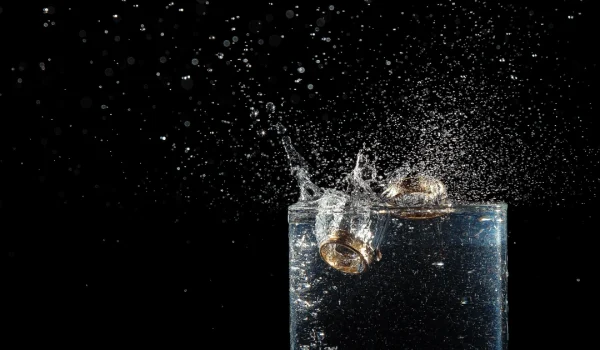Is it possible to drink more than 2 liters of water a day without serious health consequences?
In this article, “Is it Safe to Drink More than 2 Liters of Water a Day?”. Water is essential for our health, forming a crucial component of our bodies and playing a pivotal role in various bodily functions. You’ve likely come across the common recommendation to drink at least 8 glasses of water daily, roughly equivalent to 2 liters. But the question persists: Is it safe to drink more than this amount of water a day?
We delve into the science behind hydration, exploring the intricate balance our bodies seek. We investigate the potential consequences of exceeding the traditional 2-liter guideline, examining whether there’s a one-size-fits-all answer to how much water you should drink daily. Join us on a journey through the science of hydration to uncover the facts and myths surrounding water consumption for optimal health.
Table of Contents
The importance of hydration
Before getting into the specifics of water intake, it’s important to understand why staying hydrated is important to our health. Water is involved in almost every bodily function, from regulating body temperature to aiding digestion and eliminating waste. Some of the important roles of water in the body are:
1. Body temperature regulation
Sweating is our body’s natural cooling mechanism. When we are active or in a hot environment, we sweat to dissipate heat. Staying hydrated ensures that our body can produce sweat and maintain a safe core temperature.
2. Digestion
Water is essential for digestion. It helps break down food in the stomach and helps absorb nutrients in the intestines. Without enough water, digestive problems can occur.
3. Waste removal
Your kidneys rely on water to filter waste and toxins from the blood and to produce urine. Adequate hydration is critical to maintaining kidney health and preventing urinary tract infections.
2 liter guideline
The general recommendation to drink 2 liters or about 8 glasses of water a day has been around for decades. These guidelines are easy to remember and serve as a baseline for adequate hydration for most people. However, it is important to note that individual hydration needs can vary significantly based on factors such as age, gender, body size, activity level, and climate.
How much water do you really need?
Determining your specific water needs can be a little more complicated than a one-size-fits-all recommendation. The National Academies of Sciences, Engineering, and Medicine recommends daily water intake guidelines that include water from all beverages and foods. For men, it’s about 3.7 liters (or about 15 cups) per day, and for women, it’s about 2.7 liters (or about 11 cups) per day. Keep in mind that these recommendations include all fluids consumed, not just water.
Factors Affecting Your Water Needs
Many factors can affect your daily water needs. Here are some important considerations:
Activity level:
If you are physically active or live in a hot climate, you will need more water to replace fluid loss through sweat.
Body size:
Larger people generally need more water to maintain adequate hydration.
Age:
Hydration requirements for children and elderly adults may differ from those for younger adults.
Pregnancy and Lactation:
Pregnant and lactating women need more water to increase blood volume and milk production.
Dangers of over-hydration
Although adequate hydration is important, it is possible to overdo it. Drinking too much water in a short period of time can lead to a condition called hyponatremia, which is characterized by dangerously low levels of sodium in the blood. Hyponatremia can be life-threatening and is often the result of consuming more water than the body can excrete.

Symptoms of Hyponatremia
Hyponatremia symptoms can vary in severity and include the following:
- Nausea and vomiting
- Headache
- get confused
- Muscle aches
- Visits
- Coma
It is important to note that hyponatremia is relatively rare and is more likely to occur in extreme situations, such as endurance sports where individuals consume excessive amounts of water without adequate sodium intake. Most people will never experience hyponatremia if they listen to their body’s natural signals of thirst.
Benefits of Staying Hydrated
Adequate hydration comes with many benefits, including:
1. Improved physical performance
Staying well hydrated can increase your physical performance, making exercise and daily activities more manageable.
2. Better cognitive function
Dehydration can lead to difficulty concentrating and cognitive impairment. Maintaining adequate levels of hydration is essential for mental clarity.
3. Weight management
Sometimes, the body can confuse thirst with hunger. Drinking enough of water can help prevent overeating and mindless nibbling.
4. Skin health
Adequate hydration is essential for healthy, glowing skin. It helps maintain skin elasticity and can prevent dryness and premature aging.
Balancing water intake
The key to optimal hydration is balance. Here are some tips to help you find the right balance for water intake:
1. Listen to your body.
Your body is the best indicator of when it needs water. Pay attention to feelings of thirst, and sip water throughout the day to stay properly hydrated.
2. Consider your lifestyle.
If you are physically active or live in a hot climate, you will naturally need more water a day. Make modifications in light of your situation.
3. Do not force water.
Forcing yourself to drink too much water can lead to overhydration. It is best to drink when you are thirsty and avoid unnecessary fluid intake.
What happens when you drink 3 liters of water a day?
Now, let’s address the question of whether it is possible to drink more than 2 liters of water a day without any serious health consequences. Drinking 3 liters of water a day, which is more than the usual 2 liters recommended, may be safe for many people. However, it is important to do this mindfully and according to your individual needs.
Benefits of drinking 3 liters per day
Drinking 3 liters of water a day can provide a variety of benefits, including:
- Better hydration, which can improve overall health and well-being.
- Better digestion and regular bowel movements.
- Increased energy levels and improved physical performance.
Potential disadvantages of excessive water use
Although drinking 3 liters of water a day can be beneficial for many people, there are potential downsides to consuming too much water:
- Frequent urination, which can interfere with daily activities.
- Depletion of electrolytes, which if not compensated with adequate amounts of minerals such as sodium and potassium, can lead to imbalances.
- Hyponatremia, although relatively rare, is a risk if you drink too much water without replacing lost electrolytes.
The bottom line
Finally, it is possible to drink more than 2 liters of water per day for many people without serious health consequences. However, how much water should you drink per day? It depends on a variety of factors, including your age, gender, activity level, and climate.
Some additional tips and tricks
Potential disadvantages of excessive water use
- Drink water throughout the day, not all at once. This will help prevent your body from becoming overloaded with fluids.
- Always carry a bottle of water with you. This will make it easier to sip on water throughout the day, even when you’re busy.
- Add fruit or cucumber slices to your water. This can make it more flavorful and refreshing.
- Drink sparkling water instead of still water. Sparkling water can help fill you up and curb your appetite.
- Consume fruits and vegetables that contain a lot of water. This can help increase your overall water intake.
- Avoid sugary drinks, such as soda and juice. These drinks can dehydrate you and lead to weight gain.
- If you are exercising or sweating profusely, drink a sports drink or eat a salty snack to replace the electrolytes you lose.
- Be aware of the symptoms of water intoxication, such as headache, nausea, vomiting, confusion and seizures. If you experience any of these symptoms, stop drinking the water and talk to your doctor immediately.
Here are some additional tips to make drinking more water easier:
- Keep a water bottle by your bed and drink a glass of water first thing in the morning. This will help rehydrate your body after a good night’s sleep.
- Utilize your computer or phone to create reminders to sip water throughout the day.
- Drink water before, during and after meals.
- Add water to your coffee or tea.
- When you are eating out, drink water instead of sugary drinks.
- Add flavor to water by adding fruit, cucumber, or mint leaves.
- If you prefer fizzy drinks, drink sparkling water.
- Eat water-rich fruits and vegetables, such as watermelon, strawberries, cucumbers, and celery.
Note:
If you have any concerns about drinking more than 2 liters of water a day, talk to your doctor. They can advise you on how much water is right for you and how to avoid water intoxication.

Frequently Asked Questions
Yes, it may be safe for many people. However, individual hydration needs vary based on factors such as age, gender and activity level.
Hydration is essential for a variety of bodily functions, including temperature regulation, digestion, and waste removal. It is significant for general health.
The 2 liter guideline recommends drinking about 8 glasses of water per day. This serves as a baseline, but individual needs may vary based on various factors.
Factors such as activity level, body size, age, and climate affect water needs. The National Academies recommend about 3.7 liters per day for men and 2.7 liters for women.
Yes, overhydration can lead to a condition called hyponatremia, with symptoms such as nausea, headache, and, in severe cases, coma. It is rare but serious.
Staying hydrated helps with physical performance, cognitive function, weight management, and healthy skin.
Listen to your body, consider your lifestyle, and avoid over-watering. Adapt your intake to the weather and your degree of activity.
Drinking 3 liters can provide benefits such as better hydration, better digestion, and increased energy. However, individual needs must be kept in mind.
Yes, frequent urination, electrolyte depletion, and risk of hyponatremia are potential deficits if not compensated with minerals.
Drink water throughout the day, carry a water bottle, enjoy fruit flavors, choose sparkling water, and be aware of the signs of water intoxication.

